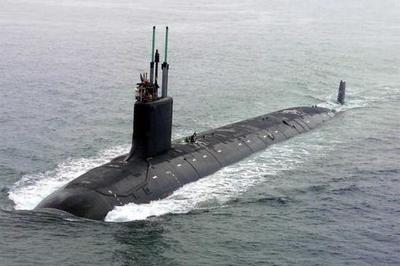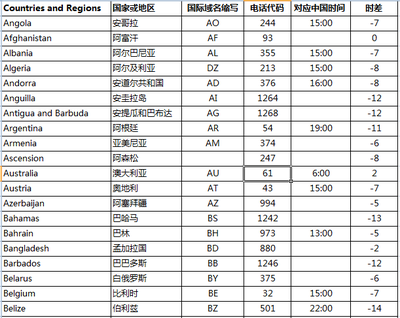但是,作为一位在西方世界上最民主的国家之一的新西兰生活的中国人,我也知道,民主制度是多么地脆弱、多么地虚伪、多么地具有欺骗性,民主对于忧郁症、破产、按揭、帐单、油价高涨等资本主义社会中人民最头痛的问题实际上也并无什么很高明的解决办法。
苦痛之际,看到7月16日新中友好协会的主席BillWillmott教授写的一篇文章,感到比较到位,特别翻译出来,介绍给国内外的朋友们,希望大家对中国的未来更多更聪明的解决方案。对于中国,你当然可以有年轻人楞头青、愤青的狂热看法,虽然我看了会不痛快;你也可以有睿智理性的看待,就像本文作者的清醒态度一样,让我觉得有道理。不管是谁,爱中国,想让中国好起来,就一定要以平等、尊重、和气的态度,用摆事实讲道理的方法让中国人民心悦诚服地接受,而不能采取明火执杖,甚至以中国人民办好奥运的善愿作为勒索,胁迫中国人民就范,这样的做法就比较低级,令人气愤,其结果只能让中国对人权组织更加反感。译文并未字斟句酌,但保证大意准确,后面附原文:标题:中国与大赦国际的人权作者:Bill Willmott 翻译:张文大赦国际组织历来无畏无惧并十分有效地让世界关注那些人权受到践踏的国家,它的活动模式主要是由数以千计的成员参与的个人行动。最近,大赦国际把矛头主要指向被它认为是行为不良的国家。今年,它的重点主要是针对8月份要承办奥运会的中国,包括开展公众示威以及向运动员施加压力,让他们声明中国缺乏人权。这些活动与大赦国际的一贯宗旨和行动模式不甚相符,我发现他们对奥林匹克弘扬的和平与友谊的积极精神背道而驰,甚至可以说,他们对中国今天的现实是一知半解。当我们判断中国的人权状况时,我认为对似乎被大赦国际忽视的四个问题牢记在心十分重要。第一,我们西方人往往从政治层面来解读人权,如个人自由、选举权和法律规范,西方对发表不同政见的权利特别关注。当1947年的《联合人权宣言》通过的时候,新西兰是世界上少数几个国家坚持把社会与经济权利包括在内,如健康和教育的权利,有尊严地生存的权利和妇女平等的权利。作为一个贫困的国家,中国优先发展人民的社会与经济权利,他们已经并正持续取得巨大进步,比如,中华人民共和国通过的第一部法律就是《婚姻法》,废除包办婚姻,给予妇女在财产、离婚和(子女)监护的平等权利。去年,一个修正法案又向受到虐待和有外遇丈夫的妇女提供进一步的保护。同样重要的是,在过去的二十年间,贫困现象在中国已经大大减少,尽管与世界标准相比,中国目前尚属一个贫困的国家,但是同世界上其他贫困国家如印度相比,中国政府已经在人民的经济地位与社会福祉上取得了巨大进步。第二,按照西方自由民主的标准,在中国表达不同政见的权利微乎其微,即便如此,它的现状依然比整个中国历史上的任何时期都要好。虽然在混乱的民国时期(1911-1949),少数几个城里的知识分子享有言论自由,但当时中国绝大多数的民众是没有受过教育的贫苦农民,根本谈不上有什么自由。中国今天不同于乌干达、津巴布韦或者缅甸,在这些国家民主权利一度受到保护,而后却被摧毁。换句话说,中国的状况并不是在变得更糟,而是一天比一天好起来。比如,全国人大(中国的议会)最近不仅通过了(新的)《婚姻法》,而且通过了一部《劳动法》,保护劳动者集体就工资和工作环境讨价还价。进一步说,法制观念正在不断加强,司法机构确保越来越多的中国人走上法庭讨还公道。如果我们一定要对中国的人权状况发表意见,我觉得我们理应在强调其不足的同时,也要承认中国取得的进步。第三,中国的工业革命不过是过去三十年间发生的,在此之前,中国更像是十八世纪的欧洲那样的农业社会,如果以同等历史时期作比较,拿1840年的英国来说,它并没有普选制,只有拥有财产的男人才能参加选举,妇女根本没有选举权;偷窃一只羊就要受绞刑,很小数额的盗窃则会导致流放,而奴隶制也不过是刚刚完结。要知道,在我们责难中国的人权记录时,我们用以比较的标准是历经一个世纪漫长的斗争而获得的理想状态,我们需要认识到,即使在西方世界,在某些地方和某些时候,那些人权理想也并未实现,当下美国因为爱国法案和情治机构引发的人权损害,以及在澳洲和英国出现的反人权逆流就是现成的例子。关塔那摩和伊拉克则堪称西方式恐怖的典型。第四,在1840到1940的一百年间,一些今天正激烈批评中国的国家完全无视他们的恶行带给中国人民的深重灾难,无耻地盘剥中国人民,更不用说关注什么人权:在19世纪,英国违背中国人民的意志,强行在中国推销鸦片;在20世纪,在上海的英国工厂里的女工和童工工作条件远比今天恶劣。中国人非常在意他们的历史,一些中国人认为西方国家特别是英美这样的国家,他们无视他们自己在中国留下的阴暗记录,反而对中国进行大肆责难完全是在吹毛求疵。甚至到今天,那种盘剥现象依然存在,由主要的跨国集团如沃尔玛、菲立浦和上海美国商会主导的游说活动,抗议中国政府新的《劳动法》就是很好的例子。基于以上原因,我希望我们在与中国交换我们对人权看法的时候不要显得既骄傲自大,又十分无知。我个人认为,以友好姿态比强硬对抗更能传达我们的批评意见,最近,新西兰运动员出现在北京本身就是一个很好的声明,让他们不要用反奥林匹克精神的示威和冒犯的标语来损害奥运会。
注:名誉退休教授比尔·威尔默特(BillWillmott)担任新中(新西兰—中国)友好协会的主席十年之久,他于2002年因其对新中友好关系所做的贡献而受到英女王嘉奖。原文见:www.nzchinasociety.org.nz/HumanRghts08.doc
HUMAN RIGHTS IN CHINA AND AMNESTY INTERNATIONAL
Bill Willmott
Amnesty International has been fearless and effective inbringing world attention to individual victims of human rightsabuse in many countries, a form of campaign for which it wasfounded and which involved thousands of people in personalaction. More recently, it has moved into genericcampaigns against governments it defines asdelinquent. This year it has taken advantage ofthe global focus on China to launcha campaign around the Olympic Games in August,which involves public demonstrations and pressure on Olympicathletes to make statements about the lack of human rightsin China.
These campaigns don’t fit well withAmnesty’s traditional role and pattern ofactivity. I find them rather distasteful anddestructive of the positive spirit of peace and friendship theOlympics are intended to promote.Furthermore, they are uninformed about thesituation in China today.
When we are judging human rightsin China, I thinkit's important for us to keep in mind four points that Amnestyappears to ignore.
1. We in the West tend to think of human rights solely inpolitical terms: human liberty, suffrage, and therule of law. In particular, the West focuses onthe right to dissent. When the UniversalDeclaration of Human Rights was adopted in 1948, New Zealand was among the few nations that insisted thatsocial and economic rights should also be included:the right to health, education, livelihood, a decent standard ofliving, and equality for women. As a poorcountry, Chinagives these social and economicrights priority, and in these rights, China has made dramatic progress and continues to doso. For example, the first law passed by thePeople’s Republic of China in 1950was a marriage law outlawing forced marriage and giving women equalrights in property, divorce, and custody. Lastyear, an amended law provided wives increased protection fromabusive or adulterous husbands. Just asimportant, poverty has been drastically reduced inChina, especially in the last twentyyears. Comparisons with other developingcountries such as India indicatethat the Chinese government has greatly advanced social andeconomic rights despite being a very poor country by worldstandards.
2. While the right to dissent in China is very weak by Western liberal democratic standards, it isbetter today than it has ever been throughout Chinesehistory. Even during thechaotic period of the Republic of China(1911-49), when a few urban intellectualsenjoyed freedom of speech, the vast majority of Chinese wereilliterate, poor peasants with no rightswhatsoever. China today isnot like Uganda,Zimbabwe, or Burma, wherehuman rights that previously were protected have beendestroyed. In other words, the situationin Chinais not deteriorating but isactually improving year by year. For example,the National People's Congress (China’sparliament) recently passed not only the marriage law but also alabour law that provides for collective bargaining on wages andworking conditions. Furthermore, there is a growing legal cultureand institutions to enforce these laws as more and more Chinese goto court to protect their rights. If we wish tocomment on human rights in China, I thinkit behoves us to recognise the progress that is being made as wellas the shortcomings that still exist.
3. China’sindustrial revolution has taken place in the last thirty years,before which China was anagrarian society much like 18th-centuryEurope. At a historically comparabletime in England--say, 1840--there was no universal suffrage (onlymales who owned property could vote), women had no civil rightswhatsoever, people were hanged for stealing a sheep and transportedfor far less, and slavery was just coming to anend. So when we chastise China for its human rights record, we are comparing it with aWestern ideal that is the result of a centuries-long history ofstruggle. And we need to recognise that even inthe West, there are times and places where these ideals are notrealised. The current erosion of civil rightsin Americaby the Patriot Act andintelligence agencies and comparable anti-rights moves inAustralia and Britain arecases in point. Guantanamo and Iraqare Westernhorrors.
4. For 100 years (1840-1940), some of the countries nowcriticising Chinawere exploiting her with noconcern whatsoever for the miserable consequences of their actions,let alone for the human rights of the Chinesepeople. In the 19th century,Britain forced opium on China against the wishes of the Chinese government, and in the20th century women and children working in factories inBritish Shanghai suffered far worse conditions than in factoriestoday. Chinese are very aware of their history,and some of them feel the condemnation by Western countries,especially Britain andthe USA, is grosslyhypocritical in not acknowledging that their own record inChina was dismal. And thatexploitation continues today, evident in the strong lobbyingagainst the new labour law by such major transnational companies asWallmart, Phillips and the Shanghai American Chamber ofCommerce.
For these reasons, I hope that we will be able tocommunicate our human rights concerns to the Chinese in ways thatdo not sound arrogant or uninformed. In myopinion, working through friendship rather than confrontation is afar more effective way to get our criticismsacross. The very presence of New Zealand athletes in Beijing makes afine statement. Let them not spoil it withanti-Olympic demonstrations or insultingslogans.
Emeritus Professor Bill Willmott CNZM was nationalpresident of the New Zealand China Friendship Society for ten yearsand was honoured by the Queen in 2002 “for services toNew Zealand -China relations.”
 爱华网
爱华网

